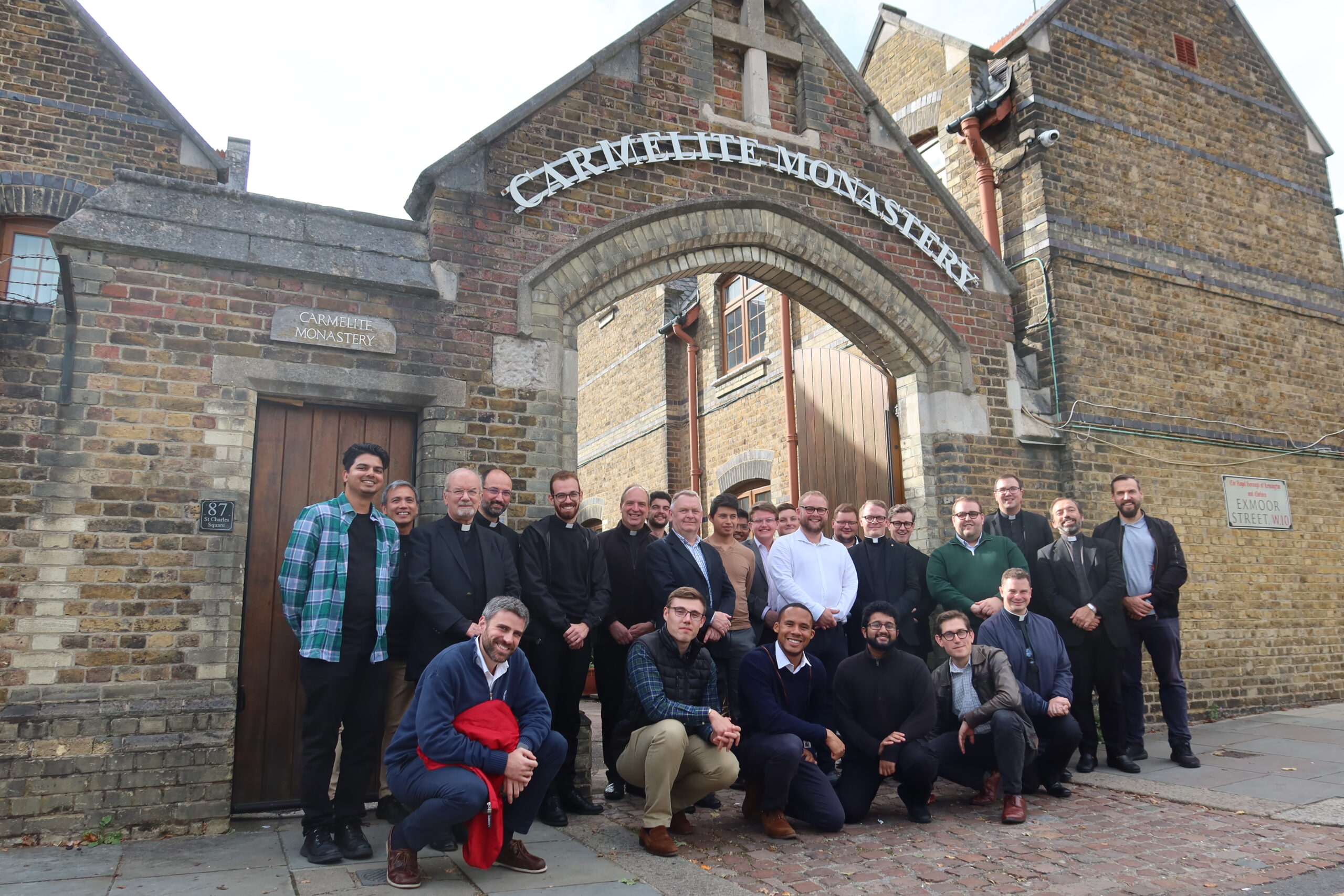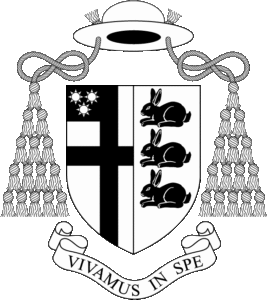
Human Formation
All the power we see in Christ’s Priesthood will be given in the Sacrament of Ordination. It is the task of Human Formation at Allen Hall to anticipate these graces by striving to embody these qualities in and through our God-given humanity.
By Fr Michael Doyle
Director of Human Formation
St Pope John Paul II in his document governing seminary formation, “Pastores Dabo Vobis” places the call to Priesthood and the response to that call firmly in our humanity with all its gifts and limitations. If during the years of seminary formation the human side of a seminarian’s life is neglected or disregarded then, in the Pope’s words, “the work of priestly formation is deprived of its necessary foundation…..At the core of human formation for priesthood is the capacity to relate to others.” St. John Paul II sees this, as of “special importance” because the man called as a diocesan priest to lead a parish community has be by his very nature “a man of communion.”
In this same pivotal document, the Pope tells us that a priest should be “a bridge” and “not an obstacle” in the People of God’s encountering of the Lord. This means in reality that the seminarian and those in charge of his formation should have an eye not only to the gifts of grace and nature that the individual may possess but also be on the watch for those attitudes and personality traits which might not be in keeping with the call to be an icon of Christ to the Church community. As the years go by, the seminarian should be encouraged to develop his gifts but also be aware of those areas that still need to grow and develop if he is to become in time a true reflection of the person of Jesus Christ.
All the power we see in Christ’s Priesthood will be given in the Sacrament of Ordination. It is the task of Human Formation at Allen Hall to anticipate these graces by striving to embody these qualities in and through our God-given humanity. The purpose of which is to assist the seminarian in his years of formation to become incrementally a living witness of Christ’s Priesthood.
The model for all the formation provided at Allen Hall is based on the way that Jesus formed in his first disciples. With patience, aware of their human limitations, Jesus gradually over time brought each one of his disciples into a true understanding of what it was going to mean to follow Him.
In a similar way, the Rector and Formation Staff of the seminary are called on behalf of the Church to see if the candidate for priesthood is developing the human qualities which are in keeping with good and adequate preparation for priestly ministry. Through close accompaniment in the external forum of confidentiality, the seminarian is encouraged and challenged to develop in his humanity the qualities of Christ Himself which the Church and the People of God rightly expect to see in a future priest. This requires the seminarian, as the first agent of his formation, to be open and receptive to the programme of formation that Allen Hall provides, closely based as it is on the documents of the Church concerning seminary discernment and formation (Pastores Dabo Vobis and the Ratio Fundamentalis.) This necessarily requires of the seminarian a willingness to trust the formation process provided by Allen Hall which reflects the mind of the Church in this regard.
The human side of his formation requires the seminarian to discern with support his aptitude and suitability for priestly life and ministry. Through individual fort-nightly meetings with his formation advisor in the external forum, the seminarian is able to review his journey through the formation process. Lectures on such important subjects as human development, sexuality, celibacy and obedience are also ways in which the seminarian widens his vision of what it means to be a priest. An examination of the life of virtue through the prism of the theology of St. Thomas Aquinas also gives the seminarian an opportunity to see what it means to develop a life of holiness and virtue so important to the life of a happy and productive priest.
Through this ongoing emphasis on his human formation, the seminarian is helped to understand that by freely presenting himself to the seminary he is necessarily going to have to enter a change of lifestyle: from the old man into the new man that is emerging. As the years of formation go by the seminarians comes to see that he is a person in transition. His modes of living as a lay man are to be slowly conformed to the vision of priesthood that the Church presents to him, a vision of humble service to the People of God following the example of Christ Himself who came to serve and not to be served.
When, as the Human Formation Director, I first meet with the new seminarians at the beginning of each academic year I always stress to them the great gift that the Church has given to them in coming to Allen Hall. In this supportive yet challenging formation community all they have to do is to give themselves freely over to a rich programme that will in time, through the action of the Holy Spirit, transform them into the kind of priests that the Church expects and deserves; namely good and holy men alive and energized who are in touch with their humanity and whose only desire is to be good, faithful and humanly mature priests.

Intellectual Formation
The aim of intellectual formation at the seminary is to expose the ordinand to the Church’s tradition and to deepen the knowledge and love of the mystery of faith.

Pastoral Formation
The goal of seminary formation is to prepare priests for the work of the new evangelisation so that they can lead and collaborate with the people of God in this urgent task. They are to be formed “in the image of Christ”.

Human Formation
All the power we see in Christ’s Priesthood will be given in the Sacrament of Ordination. It is the task of Human Formation at Allen Hall to anticipate these graces by striving to embody these qualities in and through our God-given humanity.

Spiritual Formation
The aim of spiritual formation at the seminary is to accompany the seminarians who come to Allen Hall for support and guidance.